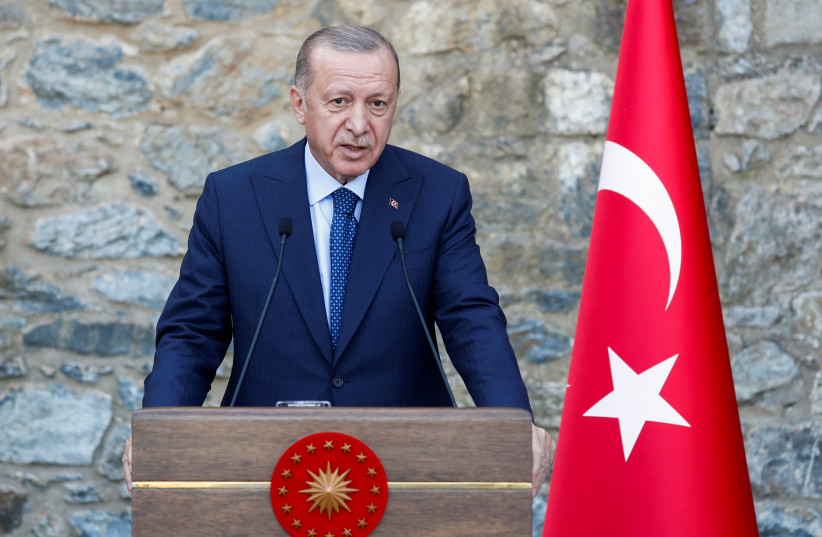The Turkish Foreign Ministry slammed the US for a deal with Cyprus, while at the same time, state media TRT published an article bashing the US. This apparent push for tensions with the US comes as Turkey and Russia are headed for a closer partnership.
“We condemn the signing of an agreement between the National Guard of the State of New Jersey and the Ministry of Defense of the Greek Cypriot Administration (GCA) within the framework of the National Guard Bureau’s State Partnership Program, under the scope of the US Department of Defense, following the GCA’s inclusion in this program last October,” the Turkish Foreign Ministry said in a statement.
The overall Turkish objection was not clear, but Ankara seems to think the US and Cyprus are working closely together, which will harm Turkey’s occupation of northern Cyprus. Turkey invaded Cyprus in the 1970s, setting up a separate government in the northern part of the island.
Turkey’s pro-government media publishing reports about Cyprus tensions is not due to any real change in Cyprus but rather is mostly about Ankara using this to fan flames of tensions with the US.
Why is Turkey bashing the US?
TRT also ran an article claiming that “the long list of disagreements and tension between Ankara and Washington can be narrowed down to one dynamic: Washington’s negligence of Ankara’s national security and vital interests. Likewise, despite multiple points drawing Ankara’s ire in the report, it conveys one clear message: the US maintains its long-held policy of neglect towards Turkey.” The article accuses the US of not supporting Turkey’s “counter-terrorism” efforts. Ankara often arrests dissident politicians under the guise of fighting “terrorism,” so it is not surprising that the US is not supportive.

Turkey is expected to attend meetings, along with Syria and Iran, in Russia, which is looking to see Turkey normalize ties specifically with Syria. Russian state media said on Monday that “Turkish President Recep Tayyip Erdogan said his doors are now closed for US Ambassador to Ankara Jeff Flake following the diplomat’s meeting with Kemal Kilicdaroglu, the presidential candidate from the main opposition Republican People’s Party.” Turkey’s election will take place on May 14.
Additionally, pro-government media in Turkey has said that Erdogan might host Putin in the near future for the inauguration of the Akkuyu nuclear power plant. Daily Sabah said that “speaking in an interview on ATV-a Haber late Wednesday, Erdogan said Turkiye is determined to proceed with the nuclear power plant project, despite objection from the opposition…He noted that Putin may either travel to Mersin in person or attend via teleconference.” This comes just as Turkey is sending officials to meet in Moscow.
The Turkish media narrative is designed to showcase how close Turkey is to Russia and how it opposes the US. While Ankara is a NATO member, it often sees itself as opposed to the West and works to improve relations with Iran, Russia and the Syrian regime.
The recent moves to condemn the US on Cyprus, to give the cold shoulder to the US ambassador and to embrace Putin – even after he has been accused of war crimes – might be part of a process of Ankara heating up tensions with the US before elections in May.
